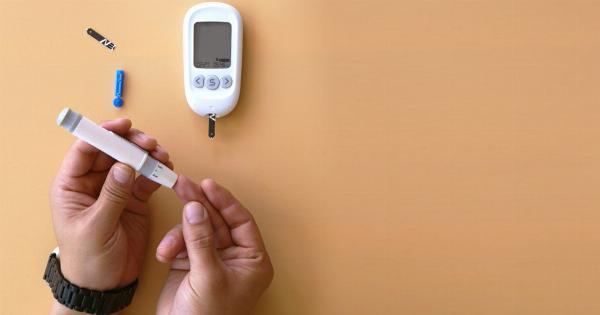Electrolytes are essential for human body functions, and maintaining the correct balance is crucial for our cells and organs to work effectively.
They carry electrical charges that are responsible for controlling many bodily functions, including muscle contractions, communication between cells, and the transport of nutrients and waste products.
What are Electrolytes?
Electrolytes are minerals that carry an electric charge when dissolved in a liquid, such as blood or urine. The body’s main electrolytes include sodium, potassium, calcium, bicarbonate, magnesium, chloride, and phosphate.
These minerals are vital for maintaining fluid balance, regulating the body’s pH levels, and keeping the nerves and muscles working correctly.
Why Are Electrolytes Important?
Electrolytes play a crucial role in maintaining the body’s overall health and well-being. They are involved in many critical bodily functions, including:.
- Regulating fluid balance: Electrolytes help to regulate the amount of fluid inside and outside cells, ensuring the body has the right amount of water for normal function.
- Controlling nerve and muscle function: Electrolytes help to transmit signals between cells and regulate muscle contractions.
- Maintaining pH balance: Electrolytes help to maintain the body’s acid-base balance, which is essential for many cellular processes.
- Transporting nutrients: Electrolytes are involved in transporting nutrients, such as glucose and amino acids, to the cells.
- Removing waste: Electrolytes help to remove waste products, such as urea and creatinine, from the body.
The Main Electrolytes in the Body
There are several different electrolytes that play vital roles in the body:.
Sodium
Sodium is one of the main electrolytes found in the body and is involved in the regulation of fluid balance, nerve function, and muscle contractions. Sodium is also essential for the absorption of glucose and other nutrients into the cells.
Potassium
Potassium is another important electrolyte that plays a key role in nerve and muscle function. It also helps to regulate the body’s fluid balance and can help to lower blood pressure by counteracting the effects of sodium.
Potassium is found in many foods, including bananas, avocados, and spinach.
Calcium
Calcium is essential for strong bones and teeth as well as proper muscle and nerve function. It also helps to regulate the body’s fluid balance and is involved in many cellular processes, including blood clotting and hormone release.
Calcium is found in many dairy products, leafy greens, and nuts.
Magnesium
Magnesium is essential for many cellular functions, including protein synthesis, energy production, and DNA synthesis. It also helps to regulate blood pressure and maintain healthy heart function.
Magnesium can be found in many nuts, leafy greens, and whole grains.
Chloride
Chloride is primarily involved in maintaining the body’s fluid balance and is found in many foods, including table salt and processed foods.
Bicarbonate
Bicarbonate helps to regulate the body’s pH levels and is involved in many processes, including digestion and respiration.
Phosphate
Phosphate is involved in many cellular processes, including DNA synthesis and energy production. It also helps to regulate the body’s fluid balance and is important for bone and teeth health.
Phosphate can be found in many foods, including dairy products, meats, and whole grains.
Electrolyte Imbalance
An electrolyte imbalance can occur when there is too much or too little of an electrolyte in the body. This can be caused by a variety of factors, including dehydration, kidney disease, and certain medications.
Common symptoms of an electrolyte imbalance include:.
- Muscle weakness or cramps
- Irregular heartbeat
- Numbness or tingling in the hands or feet
- Fatigue
- Confusion
- Seizures
- Swelling in the legs or feet
Electrolyte Balance and Exercise
During exercise, the body’s fluid and electrolyte balance can be disrupted as a result of sweating and increased fluid loss. It is essential to stay hydrated during exercise and replace any fluids and electrolytes lost through sweating.
Drinking water may not be enough to fully replace lost electrolytes, particularly if the body is under significant stress or if strenuous exercise lasts over a long period. Sports drinks contain electrolytes that can help to replace lost fluids more effectively.
Conclusion
Electrolytes are essential for the normal function of the body’s organs and cells. Maintaining the correct balance of electrolytes is crucial for overall health and well-being.
It is vital to stay hydrated and replace lost fluids and electrolytes during exercise or any other activities that cause significant fluid loss.






























